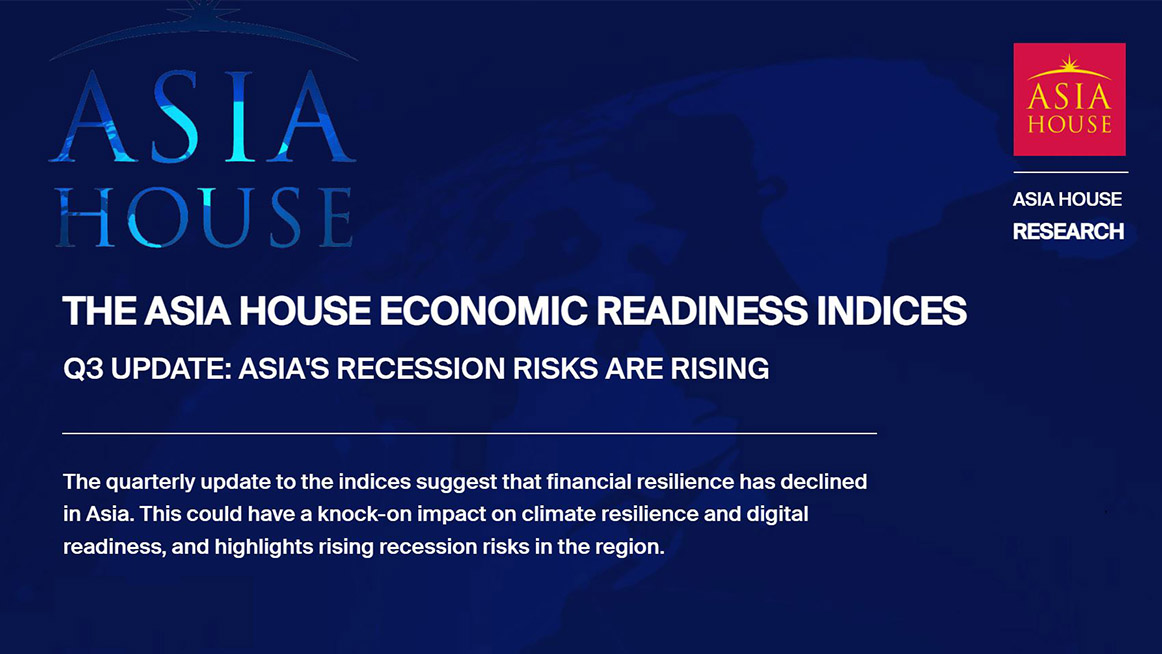The latest update to the Asia House Economic Readiness Indices suggest that financial resilience has declined in Asia. This could have a knock-on impact on climate resilience and digital readiness, and contributes to rising recession risks in the region.
The Q3 update to the indices – which track Asian economies’ capacity for green finance and digitalisation – also highlights a paradigm shift in real interest rates across Asia.
Published quarterly by the Asia House Research team, the indices gauge progress in the region’s eight core economies: China, Japan, India, Indonesia, Vietnam, Malaysia, Thailand and the Philippines.
Key findings
- Financial resilience has declined in Asia, with the region seeing a step-change in financing conditions which will impact real economic growth. Real, or inflation-adjusted, interest rates are likely to create difficulty for some SMEs in raising or financing debt.
- The decline in the region’s foreign exchange reserves is of concern in that it is likely to continue as central banks look to stabilise depreciating currencies to limit volatility and inflation pressure. Reserve depletion can come at the cost of investment.
- Encouragingly, Asia’s digital development continues to progress, despite economic headwinds. E-commerce and digital payment development and resilient inward greenfield foreign direct investment (FDI) have been essential.
- Asia’s larger economies saw declines in economic readiness for green finance due to lower financial resilience, with China and India chief among them. The twin dynamics of higher real interest rates and domestic currency depreciation were drivers.
- The Southeast Asian (SEA) economies showed comparative resilience in digital readiness, owing to measures relating to the facilitation of digital trade. The relative resilience offset the weakness in the SEA countries’ financial resilience measures.
READ MORE AND VIEW THE LATEST INDICES
Join our mailing list to receive Asia House research, analysis and event information direct to your inbox.

